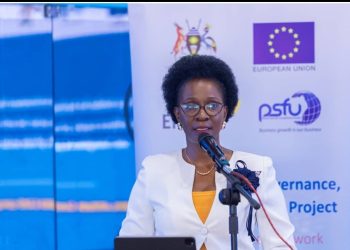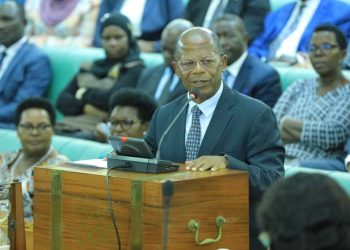Buganda Road Chief Magistrates’ Court is to start handling cases via a high-tech video conferencing facility link to Luzira Prisons. This will eliminate the need for inmates to travel from prison to court to be informed about the progress of their cases.
Two virtual courts are going to be operationalized in Luzira Prisons. One will be in Luzira Upper Prison male wing and the other in the women’s wing. This, according to the officials at the Judiciary, will eliminate waste of time and cut costs associated with the transportation of suspects.
Video conferencing uses technology to create visual connection between persons in separate places in real-time, typically with high-quality video and audio. Two big screens (60-80 inches), one fixed at Buganda Road court and the other in the prison will be used to facilitate hearing of cases.
The Judiciary publicist, Solomon Muyita, said for now they are using the courts to handle criminal cases that are cause-listed for mention before they are fixed for hearing.
Chief Justice Bart Katureebe will today commission a video conferencing system in Luzira Maximum Security Prison. Hosted at the National Data Centre under the National Information Technology Authority Uganda (NITA-U), the high-tech court conference facilities were recently installed both at Luzira Prisons and Buganda Road Court in Kampala.
Muyita said the technology is designed to aid the mentioning of all criminal cases at Buganda Road Court involving accused persons on remand before their cases are fixed for trial. He said Buganda Road court would also handle related cases on behalf of the magistrates’ courts of Makindye, Nakawa, Nabweru, Law Development Centre (LDC), Kira, City Hall, Nateete/ Rubaga, Luzira, Kasangati and the Anti-Corruption Court.
With time, he said, the two virtual courts will start handling the hearing of cases. Justice Geoffrey Kiryabwire, who chairs the Judiciary’s technology committee, last week after leading a technical team inspection to Buganda Road Court, NITA and Luzira Prisons, said the facilities were satisfactory.
“We have entered the courts of the future in Uganda,” he said, adding: “Uganda is the first country in East Africa to set up courts inside a prison. The Judiciary’s strategy is to revolutionalise the way justice is dispensed.” “We are moving courts from buildings to services that are available to Ugandans who need them,” he noted.
NITA-U’s executive director James Saaka said the facility was designed to connect the courts beyond the geographical boundaries to provide faster administration of justice. He said recordings from all court sessions would be safely kept in the National Backbone Infrastructure at the National Data Centre.































































